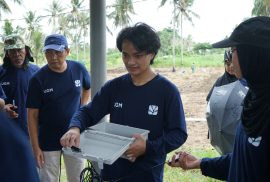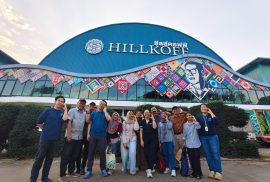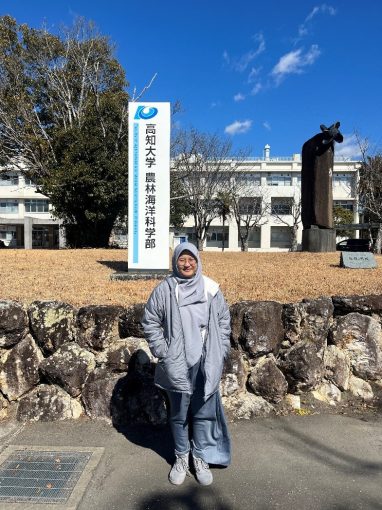
Mu’tashimah Asshof also known as Shofi, a master’s student in Agricultural Engineering from the Department of Agricultural and Biosystems Engineering, Faculty of Agricultural Technology, Universitas Gadjah Mada (UGM), has achieved a remarkable milestone by being selected as a recipient of the Six University Initiative Japan-Indonesia Joint Program for Master Students (SUIJI-JPMS) scholarship. This one-year program, which began in January 2025, offers selected students the opportunity to engage in international collaborative research in Japan.
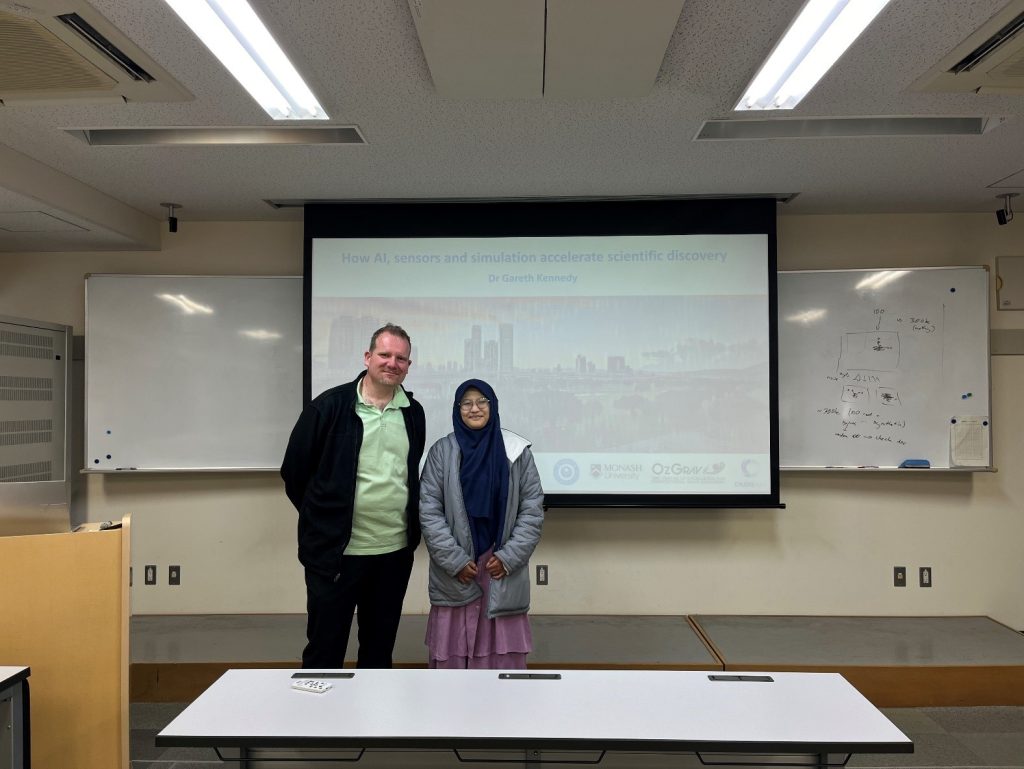
As part of the SUIJI-JPMS program, Shofi is conducting research titled “Modeling the Detection of Foreign Materials in Rice Using Near-Infrared (NIR) Spectroscopy and Microscopy.” The research aims to develop a rapid and accurate detection technology for contaminants or foreign materials in rice—one of Asia’s staple food commodities. The NIR-based spectroscopy technology is considered promising for improving food safety and quality through a non-destructive and efficient approach.
This research is being conducted at the Laboratory of Food Production Process, Faculty of Agriculture and Marine Science, Kochi University, Japan. During her research, Shofi is supervised by Prof. Kawano Toshio from Kochi University and Dr. Rudiati Evi Masithoh, S.T.P., M.Dev.Tech. from UGM.
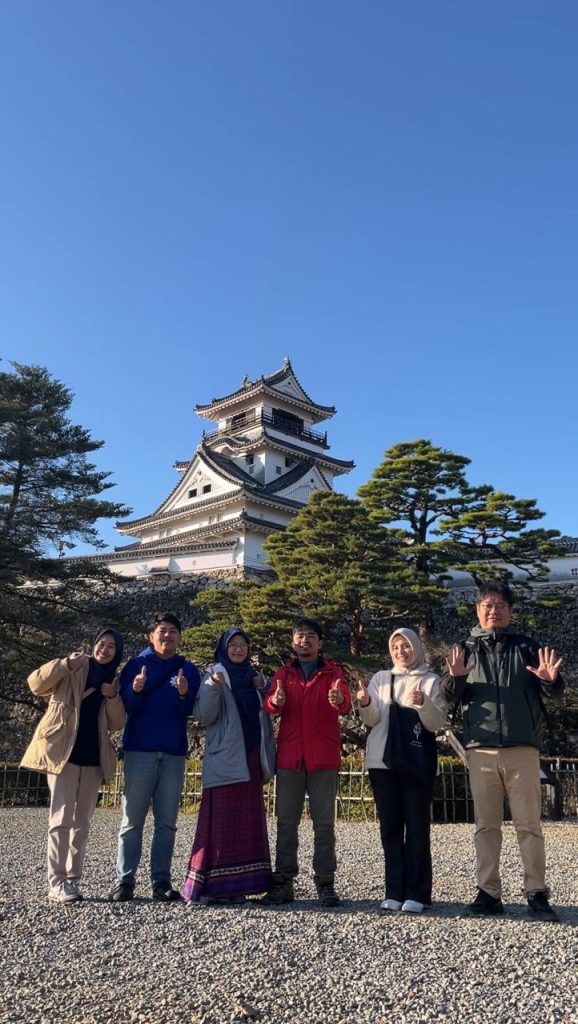
Shofi’s participation in this program not only enhances her expertise in agricultural technology but also reflects the spirit of international collaboration between Indonesia and Japan in advancing science and technology. The SUIJI-JPMS research collaboration also contributes to the achievement of the Sustainable Development Goals (SDGs), particularly SDG 9: Industry, Innovation, and Infrastructure, SDG 12: Responsible Consumption & Production ,and SDG 17: Partnerships for the Goals, by promoting research-based innovation and academic exchange across countries.
The involvement of Indonesian students like Shofi in such international research programs is expected to pave the way for the development of more locally adaptable technologies to address global challenges, while also strengthening relationships between higher education institutions globally.


